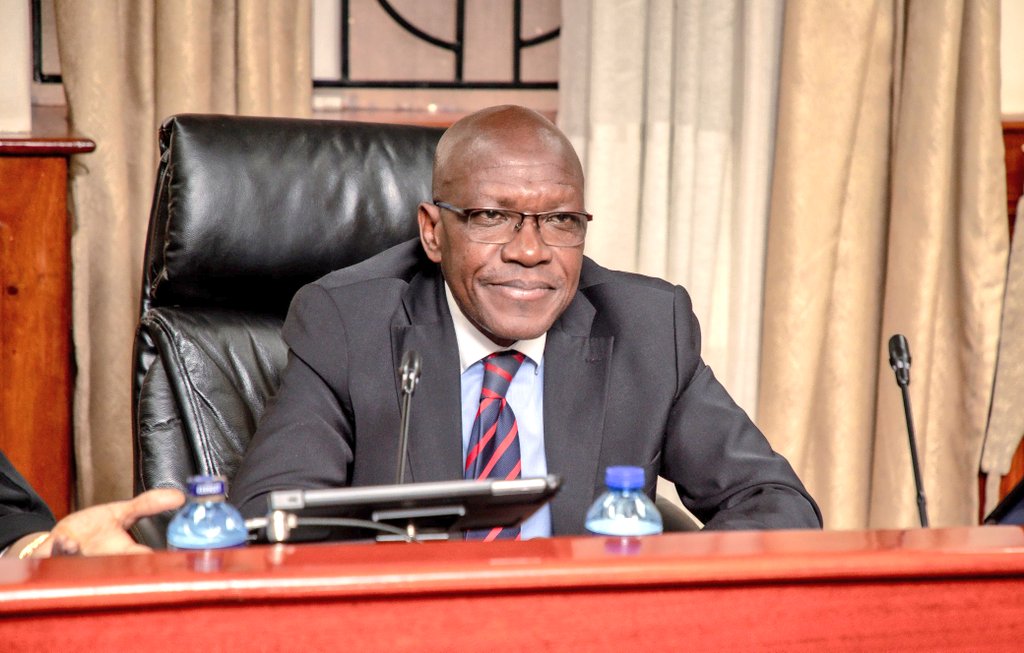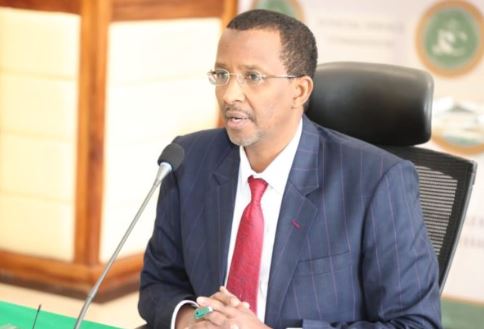Kenya taps Citi, Standard as Eurobond arrangers

Kenya has settled on two international banks as lead arrangers to help the government make a $2 billion (Sh294 billion) bullet repayment of its debut Eurobond maturing in June next year.
Disclosure by the National Treasury before the National Assembly’s Debt and Privatisation Committee shows that Kenya has picked Standard Bank and Citi Bank as the joint lead managers (JLMs).
The exchequer dropped two potential arrangers, JP Morgan and Standard Chartered Bank, who had previously been shortlisted before the current 2023/24 financial year (FY) started in July.
“The National Treasury has engaged the Joint Lead Managers (JLMs) (Standard Bank and Citi Bank) to assist the Government on the process leading to full settlement of the $2.0 billion Eurobond maturity.
This amount has been budgeted for in the approved budget of FY2023/24, and measures are in place to redeem the amount,” Treasury Cabinet Secretary Njuguna Ndung’u told the debt committee on Friday last week.
Buy backs
The Sh294 billion Eurobond repayment will take almost half of the Sh622.5 billion total external debt Kenya Kwanza is expected to settle by the end of June 2024, with payment to China also taking a significant portion of the remaining half.
To settle the Eurobond headache, the government is weighing options including a bond switch or buyback after repeatedly shrugging off fears of its ability to service the obligations.
This will see the treasury go back to the international capital market while alternating it with financing from multilateral and bilateral sources, including bank syndications. Previous attempts to issue another Eurobond in the last 2022/23 FY were shelved due to tight global financial conditions that saw the yield trend uptick.
Kenya’s options have been limited by hikes in global interest rates, weakening shilling, and the country’s plummeting dollar reserves, which have now started a fresh downward spiral after three months of relative stability.
When the bond was floated back in 2014, the 10-year paper was attracting a low interest rate of about 6.78 percent, but the rates have almost tripled now, making it expensive for developing economies like Kenya to struggle to tap Eurobond again.
By the end of last week, the interest rate of the 10-year Eurobond increased to 18.7 per cent and is still expected to continue hiking in the coming months, preparing foreign investors for good returns amid weakening shilling.
“In the international market, yields on Kenya’s Eurobonds increased by an average of 46.8 basis points, with the 2024 maturity increasing by 188.6 basis points. The yields on the 10-year Eurobonds for Ghana and Angola also increased,” the Central Bank of Kenya (CBK) stated in the last weekly bulletin.
Concessional flows
Treasury has severally lamented that market pressures triggered by the tightening of the monetary policies in the US and Europe, as well as global tensions, have reduced chances of accessing the international market, leaving Kenya dependent on the concessional flows from the International Monterey Fund (IMF) and World Bank.
“Externally, the strategy [2023 Medium-Term Debt Management Strategy] seeks to maximize on concessional borrowing while rolling over the commercial debt,” Ndung’u told the Debt committee.
Other than the external debt, there are also loan repayment pressures emanating from the domestic market courtesy of maturing the short-term government securities that will drain a significant portion of collected revenue.
Domestic debt payment is projected at Sh1.003 trillion in the same period, bringing the total debt service to Sh1.625 trillion. This financing burden will consume more than 70 per cent of the total ordinary taxes collected by Kenya Revenue Authority.











